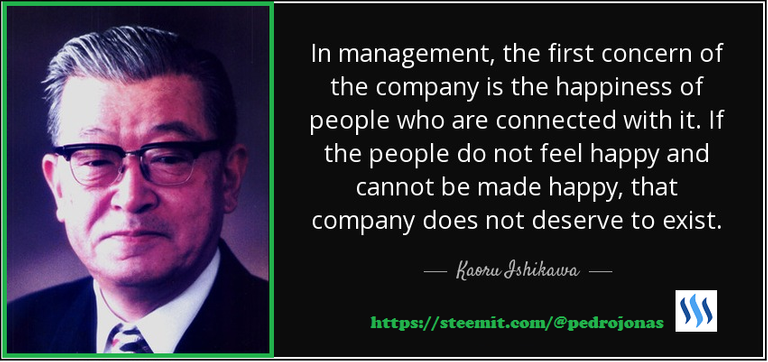The total quality
It involves the long-term commitment of an organization with the continuous improvement of quality in order to meet and exceed the expectations of customers. For the success of this method it is usually necessary to have the cooperation of the providers, in addition to the high level administrators. These should provide a vision, reinforce the values that promote quality, set quality goals and unfold the necessary resources for the application of the quality program. The quality improvement actions must be the subject of constant monitoring through the constant collection, evaluation and feedback of data and the continuous application of improvement programs.
Dr. Kaoru Ishikawa defines: "In an ambiguous way, quality means product quality. More specific, quality is quality of work, quality of service, quality of information, quality of process, quality of people, quality of the system, quality of the company, quality of objectives, etc".
Key elements of Ishikawa's thinking:
• Quality starts with education and ends with education.
• The first step to quality is knowing what the client requires.
• The ideal state of quality is when the inspection is not necessary.
• The root of the problem must be removed, not the symptoms.
• Quality control is the responsibility of all workers.
• First put the quality and then put the long-term profits.
• Trade is the entry and exit of quality.
• Problems can be solved with simple tools for analysis.

(石川馨, Kaoru Ishikawa)